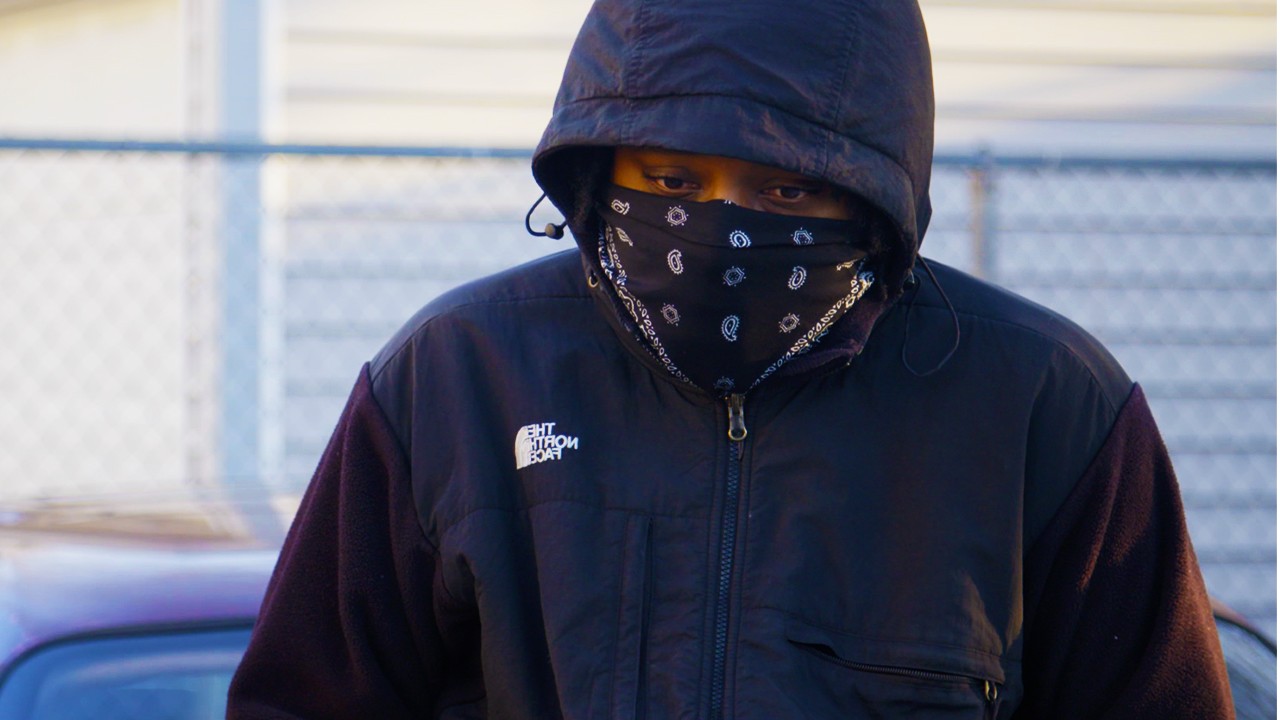Prep schools in New England tend to bring certain images to mind: ivy, boat shoes, salmon-pink slacks, ready access to drugs purchased with dad's Wall Street money.If it wasn't already, it's definitely now safe to add rampant, unchecked allegations of sexual abuse and assault to that list.Over the past few years, America has learned about horrific acts suffered by prep school students at the hands of teachers—and in some cases their classmates. In many of these cases, staff and supervisors are alleged to have looked the other way in what amounts to a poisonous environment of privilege, power, and shame.
Advertisement
Leslie Lothstein, the psychologist famed for treating abusive Catholic priests and whose early warnings church leaders were once heralded as marking "a new chapter in the relationship between the church and psychiatrists," worries that as with the initial reports of abuse at the church, the episodes of abuse at prep schools we know about may just the tip of the iceberg.That's because the root of the problem is cultural, according to Lothstein. Like in the Catholic Church, at prep schools, horrific cases have been exasperated by administrators' initial reactions. In both contexts, "you have collusion in the system," Lothstein said.While many prep school leaders are now taking moves to correct past wrongdoings, sometimes conducting their own internal probes, healing old—and some not so old—wounds means revealing how deep the abuse once went.Take Choate Rosemary Hall, a prep school in Wallingford, Connecticut, that may have served as the inspiration for Rory Gilmore's high school in Gilmore Girls and whose brick buildings and manicured lawns hosted IRL blue bloods like John F. Kennedy and Ivanka Trump. Earlier this month, the school admitted in a letter summarizing the findings of an internal investigation that at least 12 former teachers molested, and in at least one instance, raped, students in a pattern dating back to the 1960s. On Sunday, the New York Times reported that some of these teachers went on to teach elsewhere and at least two of them went on to abuse again.
Advertisement
One of the alleged repeat offenders was a man named Frederic Lyman, whom two women say was inappropriate with them when he was at Phillips Academy in Massachusetts before teaching at Choate. The teacher was forced to leave the latter school in 1982 after he was accused of having sex with two students. Investigators found at least one of them may have contracted herpes from the incident. Even so, Lyman was still able to obtain a recommendation from the then-dean at Choate boasting of his "easy familiarity" with students and snag a new gig in Colorado. (Lyman has declined comment to multiple media outlets.)In another instance, Jaime Rivera-Murillo, a Choate Spanish teacher, was accused of raping a student in a swimming pool on a school trip to Costa Rica and grabbing another student's breast in 1999. Rivera-Murillo was fired days later, but officials at Choate never reported him to police, and he went on to teach at public high school in Connecticut. Rivera-Murillo admitted to Choate officials that he drank with the students but denied rape charges. (He, too, has declined comment to reporters but resigned just this month from a new gig as principal at another school in Connecticut.)The Times reporting follows a 2016 Boston Globe story in which reporters found 31 instances where teachers accused of "sexually exploiting, assaulting, or harassing students" went on to teach elsewhere. In nine cases, the paper found, schools sent the teachers off with recommendation letters or at least served as references or validators.
Advertisement
In one instance, a teacher who was fired after he allegedly handcuffed and anally raped a student received a recommendation and was able to find work elsewhere. So common is this brazen pattern, the paper found, that child-protection agencies have a name for it: "passing the trash."Another recent report in the Boston Globe revealed that Phillips Exeter Academy*, in New Hampshire, punished a student accused of sexual assault by having him bake and deliver weekly loafs of bread to his victim. (The school later admitted mishandling that incident.) And VICE has reported extensively on the ritualized sex game at New Hampshire's St. Paul's that resulted in a statutory rape conviction for Owen Labrie. The victim's family is currently taking civil action against the school for allegedly condoning a "warped culture of sexual misconduct," which the school denies.All of this tops off a bombshell of a report last year in which the Globe tracked down more than 200 victims and at least 90 legal claims at least 67 New England boarding schools.So what the hell is going on? How have these institutes of such high repute covered up—or at least countenanced—this disturbing underbelly for so long?Reports on prep school abuse like the Globe's tend to note that unlike in public schools, private school teachers do not need to be licensed, incidents of abuse are not available via public records request, and there is no central database of reports or incidents.
Advertisement
The comparison with the Catholic Church is apt, if imperfect. As anyone who's seen Spotlight can attest, rather than alerting authorities about their crimes, or removing them from situations where they might have access to children, church officials simply shuffled accused priests between gigs. But one key difference is that the private schools who "passed the trash" between one another were not part of a single hierarchical order.Check out the VICE News Tonight segment where we met up with gang members from Chicago's West Side. James Cantor, an associate professor in the department of psychiatry at the University of Toronto and expert in the neuroscience of sex, cautions against lumping teachers preying on high school students with pedophilic priests for biochemical reasons."Pedophilia is a separate phenomena from child molestation," Cantor said. "Most of the people who are child molesters are not actually pedophilic—they prefer adults and end up molesting a child, or chose to molest a child, in place of an adult who they would actually prefer."Cantor adds that bonafide pedophiles, or those who are attracted to children who have not yet reached puberty, are distinct on a neurological level.Still, even if the brain chemistry of the offenders may vary, Cantor believes some cultural similarities between the church and preparatory schools may be relevant to stamping out this problem.
James Cantor, an associate professor in the department of psychiatry at the University of Toronto and expert in the neuroscience of sex, cautions against lumping teachers preying on high school students with pedophilic priests for biochemical reasons."Pedophilia is a separate phenomena from child molestation," Cantor said. "Most of the people who are child molesters are not actually pedophilic—they prefer adults and end up molesting a child, or chose to molest a child, in place of an adult who they would actually prefer."Cantor adds that bonafide pedophiles, or those who are attracted to children who have not yet reached puberty, are distinct on a neurological level.Still, even if the brain chemistry of the offenders may vary, Cantor believes some cultural similarities between the church and preparatory schools may be relevant to stamping out this problem.

Advertisement
"Usually the kids who go regularly both to preparatory schools and get involved in churches are nice kids who obey authorities and don't fight back and scream and yell," he said. "I really think that it is the Keep everything quiet [and] look good in front of the neighbors [mentality] that is also common among the portions of the culture that regularly attend churches and preparatory schools."Likewise, Lothstein cites the common element here of outside pressure to maintain ties to the institution. "Same way you have parents who wanted their kids to go to Choate, you had kids whose parents wanted them to go to the seminary," he said.Lothstein, whose clients once included John Geoghan—the infamous priest whose abuse against children went on for three decades—currently treats students and teachers who have been involved in abusive sexual relationships. He told me that many of the victims in the priest scandal were teenagers, and in both cases in the church and at schools, victims have referred to what happened to them as "soul murder."He went on to describe how some victims of abuse in the church told him that before the relationship in question turned sexual, they felt important to be "to be selected out of the whole group of young boys, taken to movies, taken away for weekends."That account rings eerily similar to what one of Lyman's victims told the Times: "She had been flattered that her teacher had taken an interest in her."In cases where one student abuses the other—rather than those involving teachers—the victim is less likely to be initially enthralled by their abuser. But the reports of abuse at preparatory schools do have one unifying theme, according to Lothstein: In almost all cases, "you have the administration look the other way."Follow Susan Zalkind on Twitter.*Correction 04/30/2017: A previous version of this story misstated where the Phillips Exeter Academy is located. It is in New Hampshire, not Massachusetts, where the similarly named and only loosely related Phillips Andover is located.
